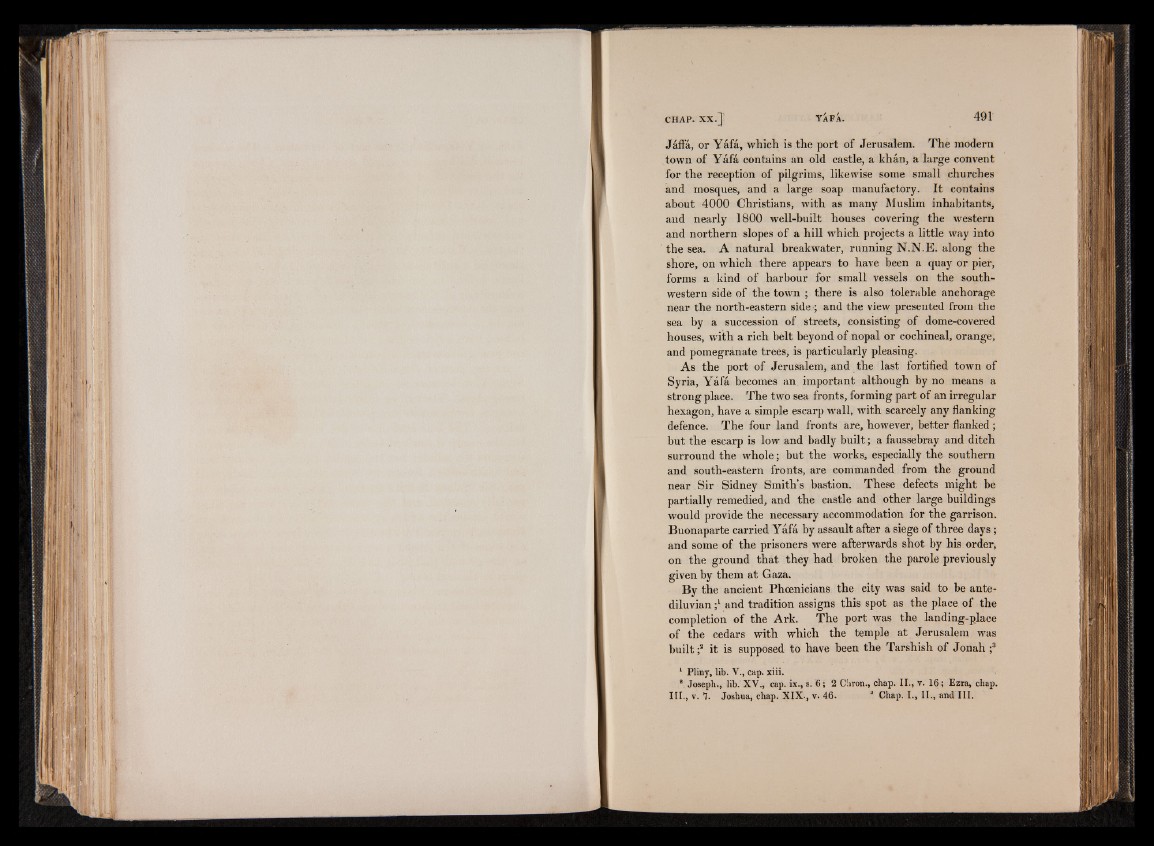
Jaffa, or Yafa, which is the port of Jerusalem. The modern
town of Yafa contains an old castle, a khan, a large convent
for the reception of pilgrims, likewise some small churches
and mosques, and a large soap manufactory. It contains
about 4000 Christians, with as many Muslim inhabitants,
and nearly 1800 well-built houses covering the western
and northern slopes of a hill which projects a little way into
the Sea. A natural breakwater, running N.N.E. along the
shore, on which there appears to have been a quay or pier,
forms a kind of harbour for small vessels on the southwestern
side of the town ; there is also tolerable anchorage
near the north-eastern side,; and the view presented from the
sea by a succession of streets, consisting of dome-covered
houses, with a rich belt beyond of nopal or cochineal, orange,
and pomegranate trees, is particularly pleasing.
As the port of Jerusalem, and the last fortified town of
Syria, Yafa becomes an important although by no means a
strong place. The two sea fronts, forming part of an irregular
hexagon, have a simple escarp wall, with scarcely any flanking
defence. The four land fronts are, however, better flanked;
but the escarp is low and badly built; a faussebray and ditch
surround the whole; but the works, especially the southern
and south-eastern fronts, are commanded from the ground
near Sir Sidney Smith’s bastion. These defects might be
partially remedied, and the castle and other large buildings
would provide the necessary accommodation for the garrison.
Buonaparte carried Yafa by assault after a siege of three days;
and some of the prisoners were afterwards shot by his order,
on the ground that they had broken the parole previously
given by them at Gaza.
By the ancient. Phoenicians the city was said to be antediluvian
;l and tradition assigns this spot as the place of the
completion of the Ark. The port was the landing-place
of the cedars with which the temple at Jerusalem was
built ;s it is supposed to have been the Tarshish of Jonah ;3
1 Pliny, lib. V., cap. xiii.
8 Joseph., lib. XV., cap. ix., s. 6 ; 2 Chron., chap. II., v. 16; Ezra, chap.
III., v. 7. Joshua, chap. XIX-, v. 46. * Chap. I., II., and III.